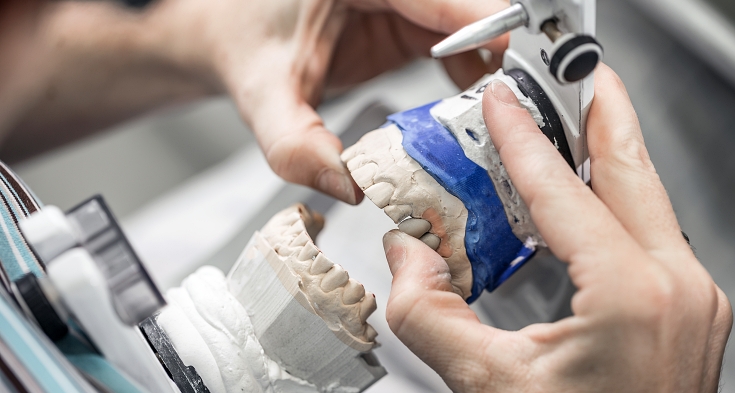
Respiratory Therapists in Florida play a crucial role in patient care—administering treatments, managing ventilators, and responding to medical emergencies. These life-saving responsibilities come with careful regulatory oversight by the Florida Department of Health (DOH) and the Board of Respiratory Care. A common Administrative Complaint against therapists is alleged violations of Florida Statute 456.072(1)(c), which centers on professional misconduct that could endanger public health or safety. Facing such a complaint is serious, and inaction could lead to fines, licensure suspension, or even revocation.
At Elevate Legal Services, PLLC, we focus exclusively on defending healthcare professionals, including respiratory therapists, who are under investigation or facing administrative disciplinary actions. Our Boca Raton law firm has years of experience handling complaints, employment-related investigations, emergency suspension orders, and administrative hearings involving Florida Statute 456.072(1)(c). When your licensing and professional reputation are on the line, we’re here to defend you at every step.
CallElevate Legal Services, PLLC today at561-770-3335 or email[email protected] to schedule your confidential case review and protect your future in respiratory care.
What Is Florida Statute 456.072(1)(c)?
Under Chapter 456 of the Florida Statutes, which governs general licensing provisions for healthcare professionals, Section 456.072(1)(c) empowers the DOH and associated boards to discipline professionals who:
“Performing his or her duties in such a manner as to create a significant danger to public health, safety, or welfare.”
This section is broad but powerful: it reaches beyond unethical conduct to include acts of gross negligence, dangerous medical practices, failure to adhere to standard protocols, or otherwise unsafe care. For respiratory therapists, this could involve mismanagement of ventilators, improper suctioning techniques, failing to respond to alarms, or not following infection‑control protocols.
Why the DOH Investigates Before Filing a Complaint
Administrative Complaints rarely arrive out of the blue. They are almost always preceded by an investigation conducted by a DOH investigator, sometimes coordinated with other agencies. In every case we’ve handled, that investigation laid the groundwork for the eventual complaint.
Here’s how the process typically unfolds:

- Incident or Complaint Occurs
A critical event—such as ventilator misuse or oxygen overdose—or a patient/family complaint is filed. - Internal or External Reporting
The therapist’s employer, a peer, or the patient notifies risk management or DOH. - DOH Field Investigation
An investigator gathers records, interviews coworkers and supervisors, and requests equipment logs and policies. - Evidence Collection
The DOH may collect clinical documentation, incident reports, medical records, and statements. - Assessment by the Medical Quality Assurance Board
Evidence is reviewed to determine if probable cause exists to issue a complaint under F.S. 456.072(1)(c).
Only after reviewing the full record does DOH file a formal Administrative Complaint. From that point forward, the therapist enters a legal and administrative battle.
Common Allegations Under F.S. 456.072(1)(c)
Respiratory therapists often face complaints alleging unsafe practices that pose real risk to patients. Common allegations include:
- Ventilator Mismanagement
Incorrect settings (e.g., tidal volume, PEEP) leading to barotrauma or hypoxia. - Failure to Respond Promptly
Missing ventilator alarms, not responding to respiratory distress, or delaying treatment changes. - Improper Handling of Nebulizers/Oxygen Equipment
Roles in disinfection of nebulizers or misuse of supplemental oxygen leading to infection or fire hazards. - Failure to Adhere to Infection Control Protocols
Including not wearing PPE during procedures or failing to follow isolation protocols. - Medication Administration Errors
Errors in administering respiratory medications such as albuterol, racemic epinephrine, or aerosolized antibiotics. - Patient Abandonment
Leaving high-risk patients unattended or terminating treatment prematurely. - Documentation Failures
Not recording ventilator settings, patient responses, alarms, or clinical recommendations. - Lack of Continuing Education
Failing to maintain required CE or staying current with evidence-based respiratory care. - Substance-Impaired Practice
Administering treatments while impaired by drugs or alcohol.
Billing Fraud
Charging for services not provided or providing unnecessary therapy sessions.
Possible Consequences of a Determination of Violation
If the DOH or Board of Respiratory Care determines you violated F.S. 456.072(1)(c), penalties may include:
- Emergency Suspension or Restriction Orders
Immediate removal from practice pending investigation if public safety is at risk. - Administrative Fines
Ranging from $500 to $5,000 per violation. - Suspension of License
Temporary loss of ability to practice as a respiratory therapist. - Revocation of License
Permanent termination of licensure in extreme or repeat cases. - Probation with Conditions
You may be subject to performance audits, supervision, continuing education, or psychological assessment. - Public Reprimand
Formal notice posted on the DOH website, visible to patients and employers. - Criminal Referrals
For gross negligence or criminal misconduct, the DOH may refer your case to the State Attorney.
These consequences can be career-altering. The earlier you secure legal counsel, the better your chances of preserving your reputation and legal rights.
Step-by-Step Guide to Responding to a DOH Administrative Complaint
If you receive a complaint under F.S. 456.072(1)(c), responding properly and quickly is essential. Here’s a structured response approach:
1. Carefully Review the Complaint
Read the complaint line by line. Identify:
- The specific day(s) and setting of the alleged incident(s)
- A detailed description of the alleged misconduct
- Evidence or witnesses identified by the DOH
- Citations to rule and statutory violations
Understanding the DOH’s position is key to crafting your response.
2. DO NOT RESPOND WITHOUT COUNSEL
DOH allows time to hire legal representation before your first election-of-rights deadline. Anything you say—whether verbally or in writing—could be used against you. Contact Elevate Legal Services, PLLC at 561‑770‑3335 or [email protected] before filing any response.
3. Secure and Preserve Critical Evidence
Immediately take steps to preserve:
- Patient charts and respiratory therapy flowsheets
- Ventilator logs and alarm reports
- Incident reports, peer reviews, and internal audits
- Staffing schedules showing supervision levels at the time
- Ventilator settings documentation and shift notes
- Emails or messages that corroborate your actions
- PPE compliance logs, training records, and competency logs
This evidence helps serve as your primary defense.
4. File Your Election of Rights
The complaint will include an Election of Rights form. Your options:
- Informal Hearing – Admit the facts, plead for lesser discipline (common in non-willful errors)
- Formal Hearing – Contests the allegations, a full evidentiary process with sworn testimony
- Request for Mediation or Consent Agreement – A settlement that may include sanctions but avoids trial
Your attorney can help determine the appropriate path based on case specifics.
5. Build Your Defense Strategy
Working with counsel, you will:
- Analyze training, policies, and supervision structures
- Identify expert witnesses (e.g., pulmonologists, risk managers)
- Challenge patient record gaps or ambiguous reporting
- Offer alternative mapping (e.g., patient outcomes were unaffected)
- Highlight prior exemplary performance and lack of disciplinary history
A solid strategy can help negotiate a favorable outcome or total dismissal.
Participating in Hearings and/or Negotiations
Whether you choose informal, formal, or mediated channels, your attorney will:
- Represent you at DOAH hearings
- Cross-examine DOH witnesses—including investigators
- Introducing your expert testimony
- Argue for settlement terms that avoid public reprimand
A skillful presentation can significantly reduce or eliminate sanctions.
7. Appeal, If Necessary
If the Board issues an unfavorable Final Order, you can file a petition in Leon County Circuit Court under Florida Statute 120.68. Appeal rights are time-sensitive, so immediate legal representation is essential.
Why Choose Elevate Legal Services, PLLC?
Defending respiratory therapists facing F.S. 456.072(1)(c) violations requires a deep understanding of both medical practice and administrative law:
DOH Licensing Discipline Expertise
We have successfully represented respiratory therapists in DOH administrative hearings and emergency restriction matters.

Strong Medical Licensing Insight
Our attorneys speak your language, understanding ventilator data, therapy protocols, and documentation demands.
Proven Results in Disciplinary Cases
We have negotiated reduced sanctions, avoided suspension, and removed emergency restrictions from practitioners’ records.
Advisory & Risk Prevention Services
We work proactively with healthcare employers to create compliance plans, internal auditing programs, and staff training in respiratory therapy regulations.
Boutique-Level Counsel, Big-Firm Results
While you receive individual attention, you gain the full power of a multidisciplinary legal team experienced in administrative proceedings and jury processes if needed.
Final Thoughts
Facing an Administrative Complaint under Florida Statute 456.072(1)(c) can feel overwhelming, and the consequences to your career and livelihood can be devastating. But you don’t have to navigate the process alone. With effective, experienced counsel, you can take proactive steps to protect yourself:
- Respond quickly
- Secure your evidence
- Leverage expert testimony
- Negotiate or defend strategically
- Go on offense to preserve your reputation
Elevate Legal Services, PLLC, stands with Florida respiratory therapists under scrutiny. We offer the resources, experience, and strategy to protect you from disciplinary actions, safeguard your license, and reinforce your future in healthcare.
CallElevate Legal Services, PLLC, today at561-770-3335 to schedule your confidential consultation. Email[email protected] and take the first step toward defending your license, your livelihood, and your legacy in respiratory care. Your career, don’t let one complaint ruin it. Trust Elevate Legal Services, PLLC to defend you with precision, tenacity, and integrity.





